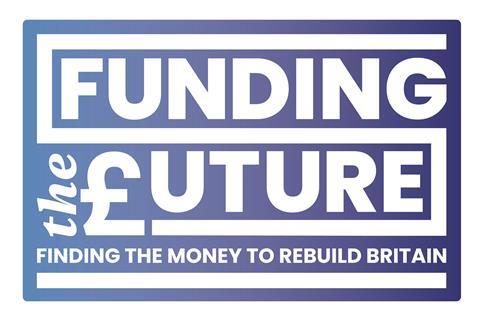As stock markets nosedived yesterday at the prospect of a global trade war, the prime minister presented a cool-headed response

All eyes this week are on the diving stock markets and a fast-approaching “global economic nuclear war” – as described by Bill Ackman, an alarmed US billionaire investor and supporter of president Trump, the man who has unleashed all this chaos on the global financial markets.
This is a fast-moving situation, but increasingly it is becoming clear that Trump does not intend to back down on the foreign imports tariffs he announced on so-called “Liberation Day” last week. The shockwaves of this new reality are now rippling out.
The UK is the least affected developed country with only the baseline tariff imposed on it, while more severe rates apply to the likes of China and the EU. But that is of limited comfort when firms like JP Morgan have said the risk of a global recession this year has increased to 60%, while in the UK growth forecasts for this year have now been downgraded to 0.8%.
For construction, Noble Francis at the Construction Products Association has pointed out that the biggest immediate threat is not volatile product prices, though that could have a negative impact on some current projects signed under fixed-price contracts.
No, the big fear is that in this the new and uncertain era for global trade, investors will not push ahead with projects that were going out for tender or are at the contract signing stage.
The fate of the entire global economy seems to be in the hands of one capricious US president
The situation felt distinctly out of control when stock markets opened on Monday and continued to slide, resulting in what commentators described as a “bloodbath”, with some dropping up to 10%. The fate of millions of jobs, thousands of companies and the entire global economy seems to be in the hands of one capricious US president who has no intention of playing by previously accepted rules.
Across the world, uncertainty leads to companies pausing investment decisions and pricing in risk, which in turn leads to inflation. As one worried construction boss said, “I think they [the US administration] are pulling the economic levers without understanding the unintended consequences.”
Keir Starmer may not be the most exciting or charismatic politician, but his measured and calm tone in his first official speech reacting to the crisis was clearly meant to sound reassuring. And to be fair, that is probably how it came across to business leaders who want a pragmatic response to Trump, not a panicked one.
Speaking at a Jaguar Land Rover factory he obviously had to acknowledge swingeing 25% tariffs on all foreign car imports to the US pose “a huge challenge” and the wider consequences of “this is a changing and completely new world”.
Starmer’s response is twin-pronged: “strength and security abroad” and “renewal at home” – by which he means he will seek the most advantageous trade deals wherever he can get them, and he will bolster key sectors in the UK economy that can drive growth.
The prime minister used the speech to bring forward parts of the forthcoming industrial strategy relating to the automotive and life sciences industries. He had some softeners for car-makers giving them more flexibility around electric vehicle targets and investing in more charging points, while for life sciences there was £600m of investment and the promise to slash red tape that holds up clinical trials.
So, little from the PM that directly benefits construction, but we know that life sciences – and to a lesser extent the EV market – does generate development work. Just as importantly, the prime minister made an explicit reference in his speech to a pro-growth stance that does directly impact this industry when he said: “We are rewiring the state completely, ripping up the regulation that stops it being a force for good. Building new homes, new towns, new infrastructure, accelerating the investment that will finally unlock the potential of every community.”
We are told to expect more industrial announcements in the coming weeks, but what impact they can have – and indeed how much control Starmer actually has in the face of Trump’s chaotic presidency, and how much advantage he can extract in trade terms – we have yet to see. Businesses in every part of the economy will be hoping he can somehow reverse what looks like an awful situation and put the country in a position to take any opportunities that do come our way.
Chloë McCulloch is the editor of Building

Seizing opportunities is at the heart of a new initiative Building has launched this week, called Funding the Future. In this series we will be exploring innovative ways to attract finance and use it effectively to deliver construction projects during a time of constrained public finances.
Funding the Future will focus on:
- Public-private partnerships: we’ll investigate how private capital can be leveraged to fund large-scale infrastructure projects, as well as schools, hospitals, prisons and housing.
- Optimising funding models: we’ll analyse existing public and private funding models to ensure they deliver tangible results – more shovels in the ground and economic growth.
- Industry engagement: over the coming months, we’ll consult with industry leaders, and gather ideas from our readers.
This week we have a special focus on the legacy of New Labour’s use of PFI and the lessons we can learn.
To find the campaign on social media follow #Buildingfundfuture. If you have views on finance and funding do get in touch with the team.




























No comments yet